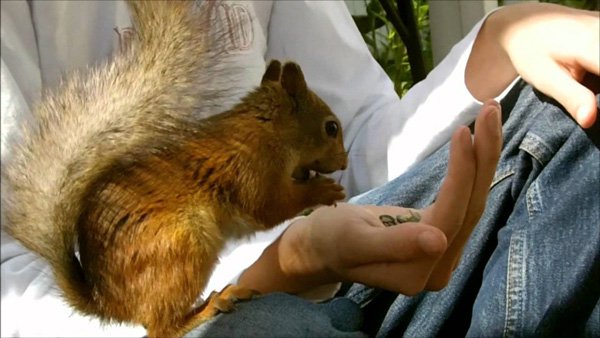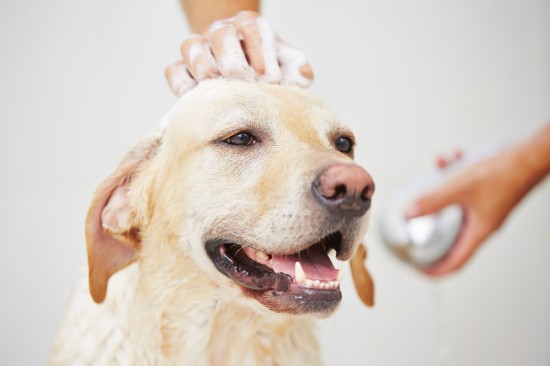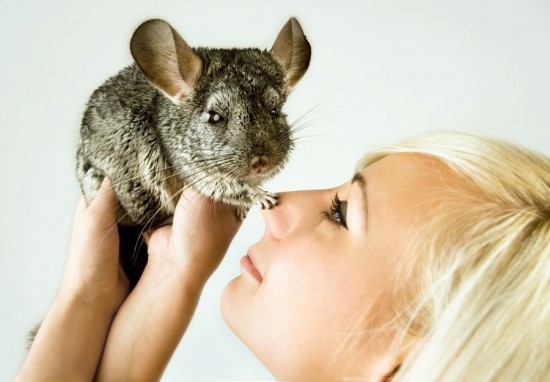
Be Consistent
This is one of the most important rules of dog training. If you teach your pup not to jump on people but allow it some of the time, your dog will be confused when you punish it for the behavior. If you do not want it to jump on people, don’t allow it to do it at all. Get other family members involved in this effort, and make sure that they understand what your dog is not allowed to do. Help them help your dog to learn the rules by teaching them how to react when it breaks them and how to reward it when it behaves properly.
Positive Reinforcement
Many owners reward with treats when the dogs do something right, but there are other ways to reward your pet. Your dog craves positive reinforcement ? pats on the head, belly rubs, outside time or a game of fetch can all positively reinforce good behavior. Dogs love affection, and a hug or a back scratch can mean even more to them than a tasty treat. Remember to reinforce the good behavior immediately. If you reward it later, your pet will likely not connect the reward to the good behavior.
Be Specific
Your dog may learn that the word “no” means that it should not do something, but it may not understand what it is that it shouldn’t do. If it jumps on someone and you say “no,” she may not understand specifically what she did wrong. Instead, say, “No! Don’t jump,” or “No, sit,” or even simply “Off!” Keep your commands short but specific so that she understands more than “no.”
Be Realistic
Certain behaviors come naturally to dogs. Digging, barking and jumping are all instinctual dog behaviors. The key is to help your pet learn when a specific behavior is appropriate and when it is not. Remember that these types of behaviors will be harder to modify because they haven’t been learned, but instead come naturally to your pet. Also take into account your pet’s age. Older dogs who were not trained as puppies may need more patience, time and attention.
Hire a Professional
If you do not have the time or patience required to properly train your dog, experts recommend that you hire a professional dog trainer. Dog training requires consistency and time, and a professional trainer can make sure that your dog learns the skills it needs. Even if you do have time to spend with your animal, hiring a professional or taking your pet to a doggy boot camp can provide additional learning and reinforcement. Professional dog training is a good investment in your pet’s future, and it can help reinforce what you teach at home. Contact a professional trainer in your area for help with all of your dog training needs.
 Taking Pet Care Services is a Smart Way to Care for Your Dog
Taking Pet Care Services is a Smart Way to Care for Your D
Taking Pet Care Services is a Smart Way to Care for Your Dog
Taking Pet Care Services is a Smart Way to Care for Your D
 Where To Bathe Your Dog
Where To Bathe Yo
Where To Bathe Your Dog
Where To Bathe Yo
 Health Issues More Commonly Seen In The Bavarian Mountain Hound
Health Issues Mor
Health Issues More Commonly Seen In The Bavarian Mountain Hound
Health Issues Mor
 The Link Between Heatstroke And Seizures In Chinchillas
The Link Between
The Link Between Heatstroke And Seizures In Chinchillas
The Link Between
 Why Do Dogs Rub Their Faces On The Carpet Or Furniture?
Why Do Dogs Rub T
Why Do Dogs Rub Their Faces On The Carpet Or Furniture?
Why Do Dogs Rub T
Copyright © 2005-2016 Pet Information All Rights Reserved
Contact us: www162date@outlook.com